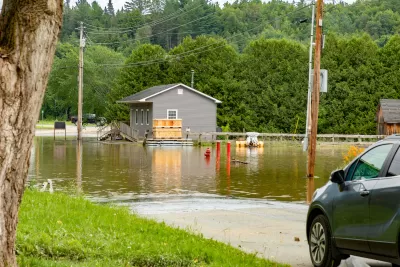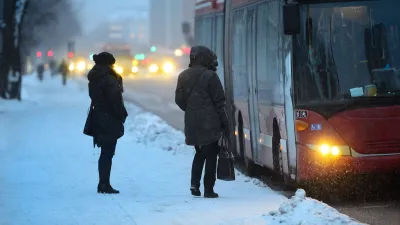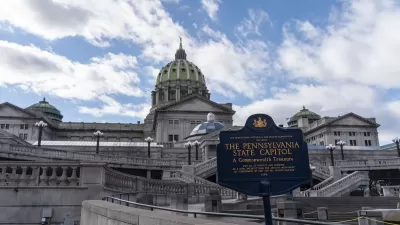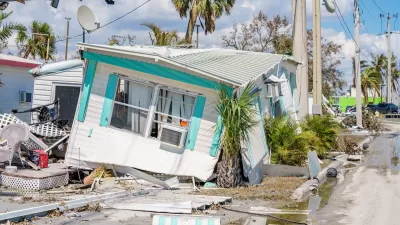Inspired by the EPA’s superfund cleanup program, the bill aims to hold companies responsible for contributing to climate change and its harmful impacts.

A new Vermont law modeled on the Environmental Protection Agency’s superfund program would require companies with high emissions to pay for climate-change-induced damages.
According to an article by Maura Barrett and Lucas Thompson for NBC News, “The amounts owed would be determined based on calculations of the degree to which climate change contributed to extreme weather in Vermont, and how much money those weather disasters cost the state. From there, companies’ shares of the total would depend on how many metric tons of carbon dioxide each released into the atmosphere from 1995 to 2024.”
Revenue would go toward “modernizing infrastructure, weatherproofing schools and public buildings, cleaning up from storms, and addressing the public health costs of climate change.”
If passed, the law is expected to face what could be a lengthy process of legal challenges. The American Petroleum Institute, one of the major lobbies for the interests of oil and natural gas companies, sent a letter to the state Senate opposing the bill, saying it “violates equal protection and due process rights by holding companies responsible for the actions of society at large.”
FULL STORY: Vermont passes bill to charge fossil fuel companies for damage from climate change

Maui's Vacation Rental Debate Turns Ugly
Verbal attacks, misinformation campaigns and fistfights plague a high-stakes debate to convert thousands of vacation rentals into long-term housing.

Planetizen Federal Action Tracker
A weekly monitor of how Trump’s orders and actions are impacting planners and planning in America.

In Urban Planning, AI Prompting Could be the New Design Thinking
Creativity has long been key to great urban design. What if we see AI as our new creative partner?

King County Supportive Housing Program Offers Hope for Unhoused Residents
The county is taking a ‘Housing First’ approach that prioritizes getting people into housing, then offering wraparound supportive services.

Researchers Use AI to Get Clearer Picture of US Housing
Analysts are using artificial intelligence to supercharge their research by allowing them to comb through data faster. Though these AI tools can be error prone, they save time and housing researchers are optimistic about the future.

Making Shared Micromobility More Inclusive
Cities and shared mobility system operators can do more to include people with disabilities in planning and operations, per a new report.
Urban Design for Planners 1: Software Tools
This six-course series explores essential urban design concepts using open source software and equips planners with the tools they need to participate fully in the urban design process.
Planning for Universal Design
Learn the tools for implementing Universal Design in planning regulations.
planning NEXT
Appalachian Highlands Housing Partners
Mpact (founded as Rail~Volution)
City of Camden Redevelopment Agency
City of Astoria
City of Portland
City of Laramie





























